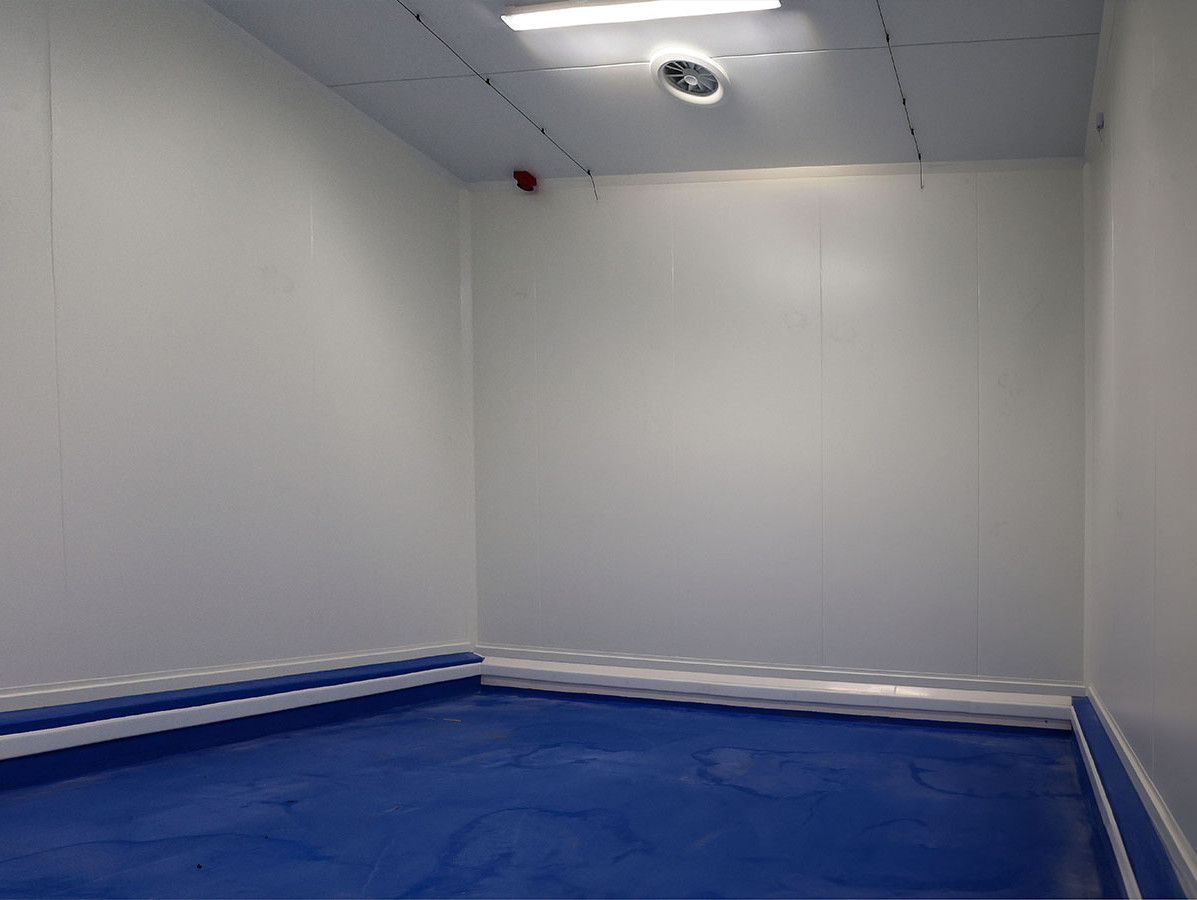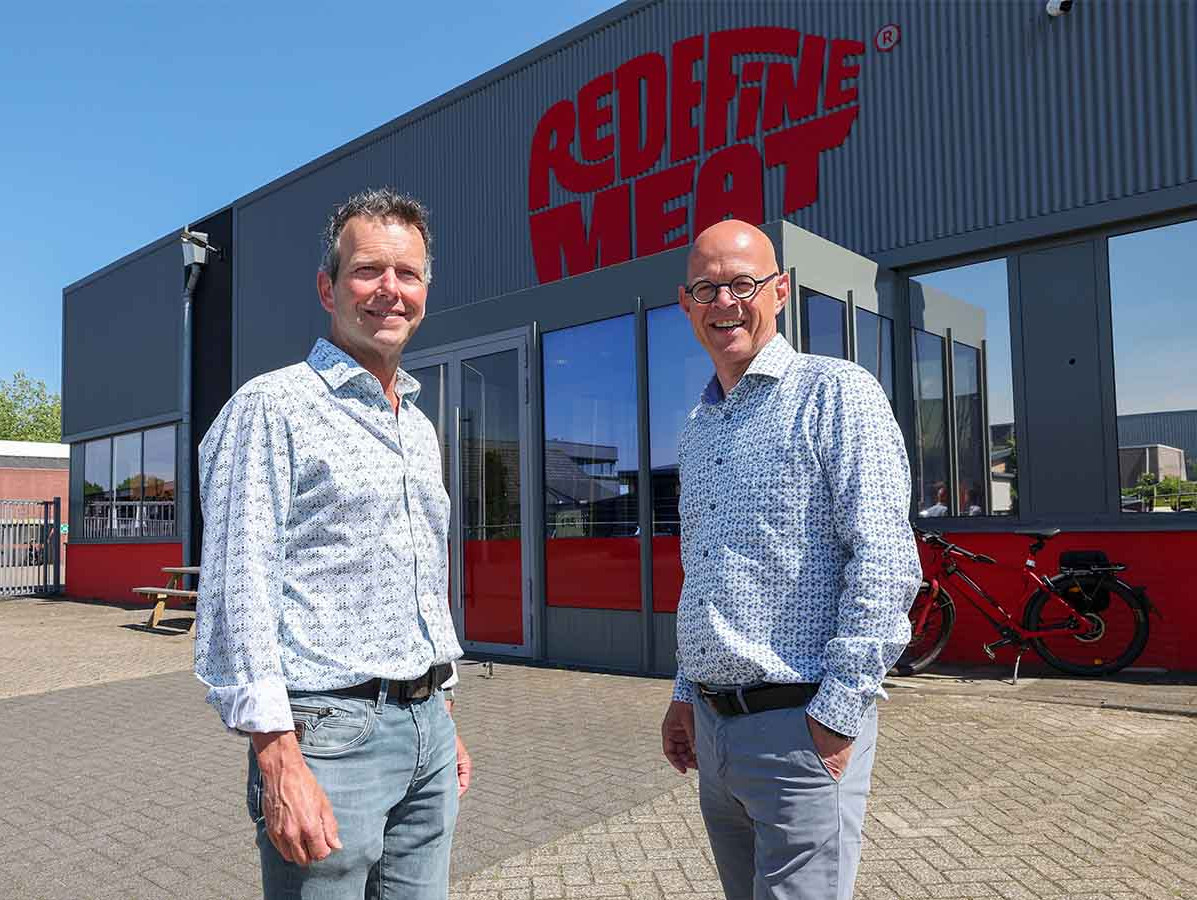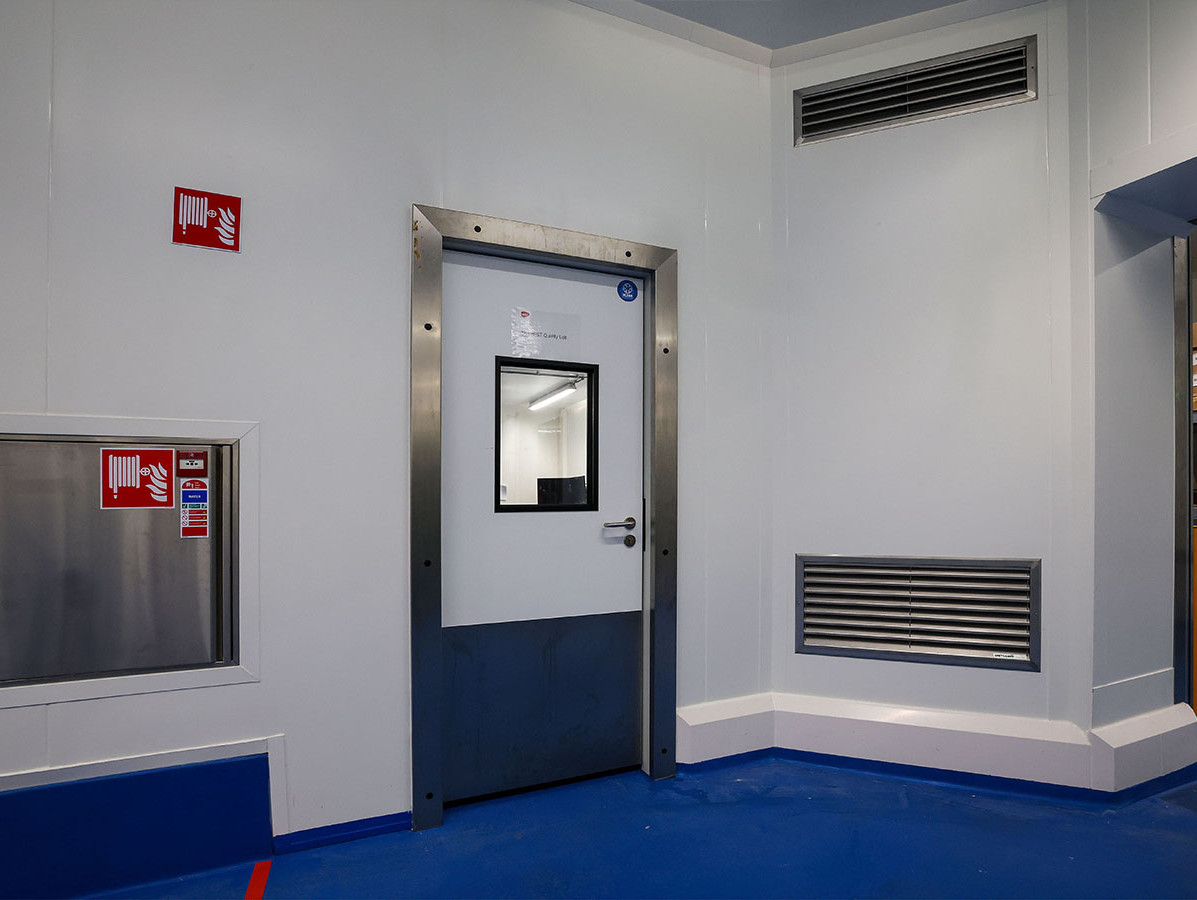
With an old meat factory, a 3D food printer, and ambitious goals, the Dutch adventure of the innovative company Redefine Meat began. The ambitions remained, the first 'printer' was developed into an industrial line, and the factory underwent a significant renovation. Key items on the wishlist included a safe and sustainable setup.
In the visitor center, the original 3D printer still stands. “Our first plant-based steaks were printed with it,” says Roel Sillen, manager of maintenance, engineering & SHE at Redefine Meat. After more than three years of research and development, the Best-based startup launched a plant-based steak in 2022 with the taste, texture, cooking experience, color, and cuttability of its animal counterpart. Various top chefs, including Michelin chef Ron Blaauw, have added the steak to their menus.
Two years later, Redefine Meat's portfolio has significantly expanded, now including plant-based pulled beef, pulled pork, bratwurst, and merguez. Production has also been significantly scaled up. Where the Dutch branch of the company started with one kilo of plant-based meat per day, the factory in Best, Brabant, now produces several tons per week. The products are primarily intended for the Dutch market and are now also available in the foodservice channel, online at Albert Heijn and Crisp, and as of the summer of 2024, on the shelves of Jumbo. “With such volumes, 3D printers are no longer sufficient. Fortunately, we have been able to translate the process to a larger-scale production environment,” says Roel. The factory is a former location of meat processor Van Loon, which operated there for about 35 years, estimates Roel. “The choice for this location was partly due to the favorable infrastructure in the building and the surrounding area. Additionally, reuse is more sustainable than new construction.”

Roel Sillen (left) and André Pes
One downside of an existing location is dealing with limitations. Roel explains: “The logistics in the building, the height, roof load capacity, and locations of the cooling units, for example. Not all our sustainability goals could be achieved because of this. However, we are currently exploring options for solar panels, and the new generation might offer more possibilities.”
For the design of the cold and freezer rooms, Redefine Meat was advised and guided by K.I.M. Nederland. For the ceilings and walls, the company installed panels from Isocab By Kingspan. Isocab By Kingspan has been producing sandwich panels in the food industry for decades. The company often serves as a resource for the design and layout of new and renovated buildings. Sustainability is not an empty phrase for them, says commercial director André Pes: “It is at the top of our priority list. With our Planet Passionate program, we give concrete meaning to those goals. This involves not only our products but the entire business operation. Think of zero waste, generating our own energy, and projects for rainwater harvesting.”
The panels from Isocab by Kingspan are made of QuadCore: a rigid foam insulation material developed by Kingspan, characterized by a high degree of fire safety. Roel: “This is advantageous for us, but essential for insurers. This, of course, also affects our insurance premium.” André highlights another significant advantage of the QuadCore material: “The insulation value is very high; the thermal conductivity is twice as low as that of polystyrene. For a company like Redefine Meat, where products are shipped both chilled and frozen, this insulation value is crucial. And with the same wall thickness as its predecessors - PUR and PIR - less energy is needed.” Roel nods: “This combination of sustainability and insurability was decisive for us in choosing these panels.”

Plans for a new factory, which will be located 'somewhere in Europe,' are in the works. Roel: “This will be a blueprint, partly based on the learnings from this location. Because we set up this factory as a startup, there is no clear standard. Fortunately, we could rely on the expertise of the companies that guided us. So, we made good basic choices. But the blueprint will undoubtedly be different - also because we will further scale up production, of course.” The volume forecasts are sky-high, Roel explains: “Among other things, we will significantly increase the production of the steak, to over 500 kilos per hour. The pulled products are also in high demand, as are the burgers; after a few sunny days, we are sold out.”
R&D remains a crucial pillar for Redefine Meat. Roel: “We develop with our own chefs, researchers, and developers. But we always incorporate feedback from our customers - the top restaurants and company canteens - for improvements. We want to stay close to the end user. Innovation is never far away here.”
www.redefinemeat.com
www.isocab.com
Photos: ©Bert Jansen
Source: Vakblad Voedingsindustrie 2024